Have you ever had a hydraulic hose failure? Nope, nobody wants that. At best, you lose a little work time. At worst, it wrecks a machine, or somebody gets hurt. To ensure that this won’t happen to you, all our hose and coupling lines at Kurt Hydraulics go through impulse and burst testing before they get the Kurt name stamped on them.
“Impulse testing is really the key to ensuring quality,” according to Scott Czupryna, Kurt Hydraulics National Sales Manager. “All our hose lines are tested based on DIN or SAE specifications.” Kurt hose and coupling lines have different specification pressure ranges. Some hoses like the Kurt Tuff brand have received testing to as many as 1,000,000 cycles in the impulse machines. “At one impulse per second, those longer tests will take days at a time,” said Czupryna. “So, it’s important to carry high-quality products and make the tests count. Kurt Tuff is our own proprietary high-pressure hydraulic hose design that offers more reliable and resilient performance than standard hydraulic hoses and exceeds DIN and SAE standards.”
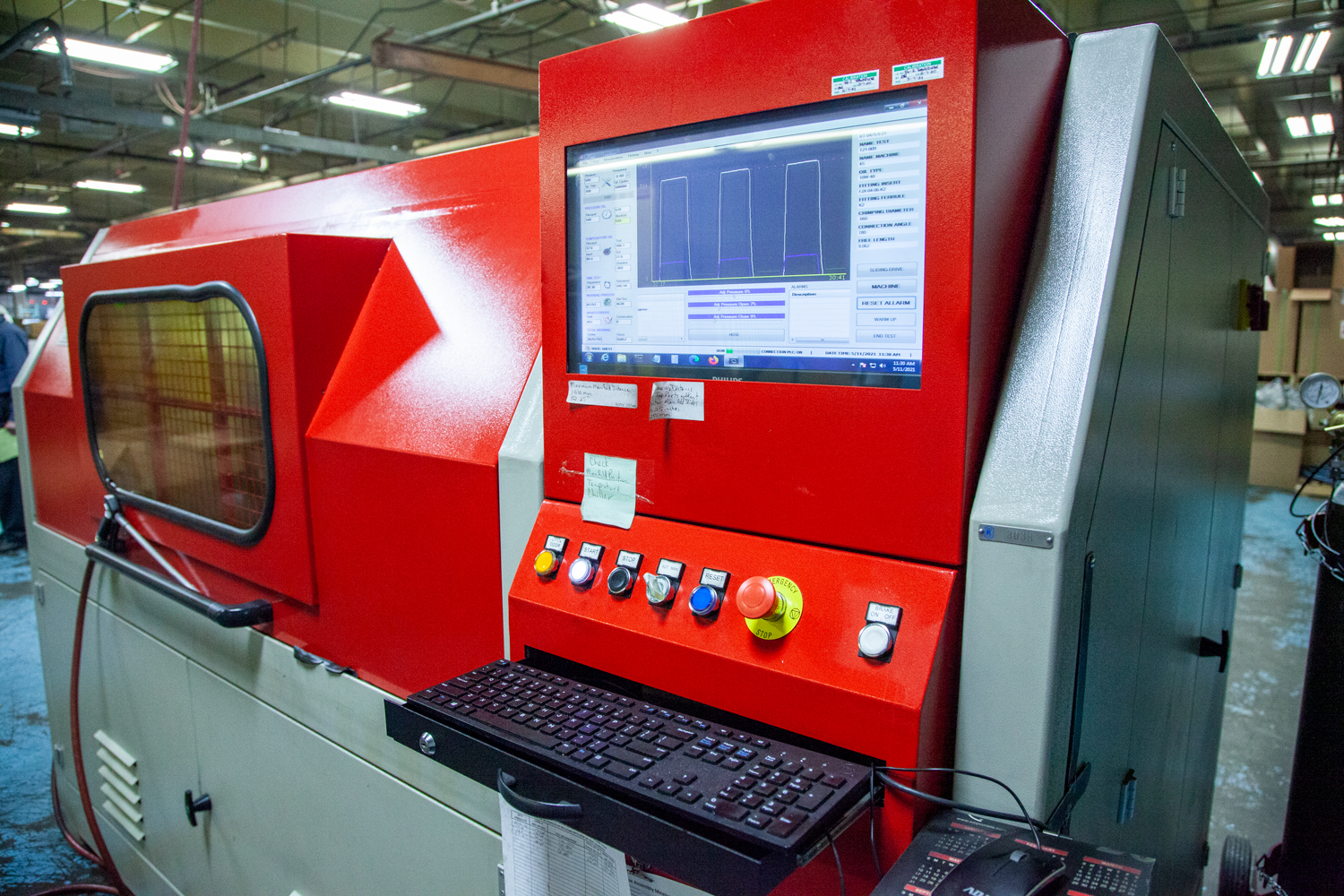
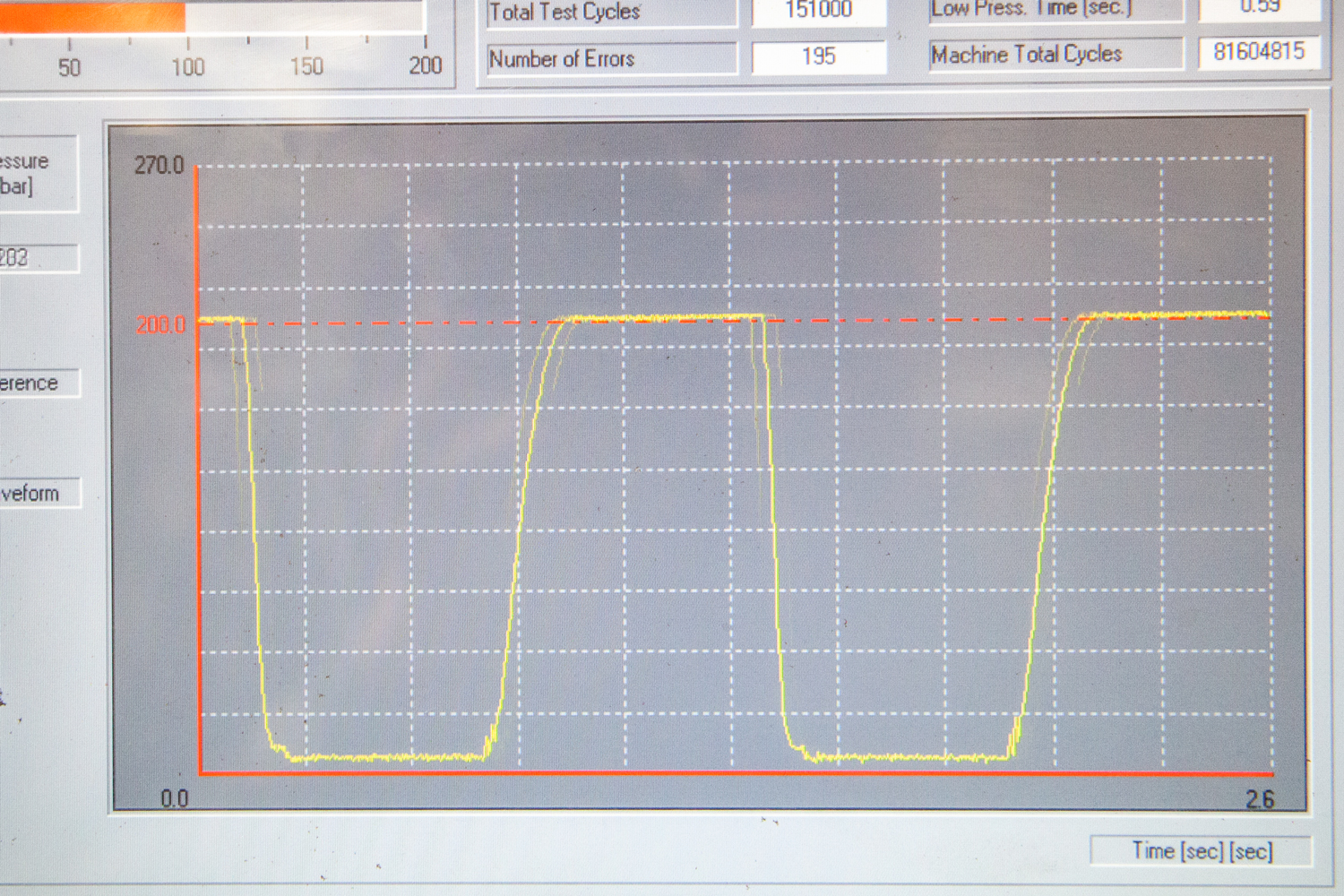
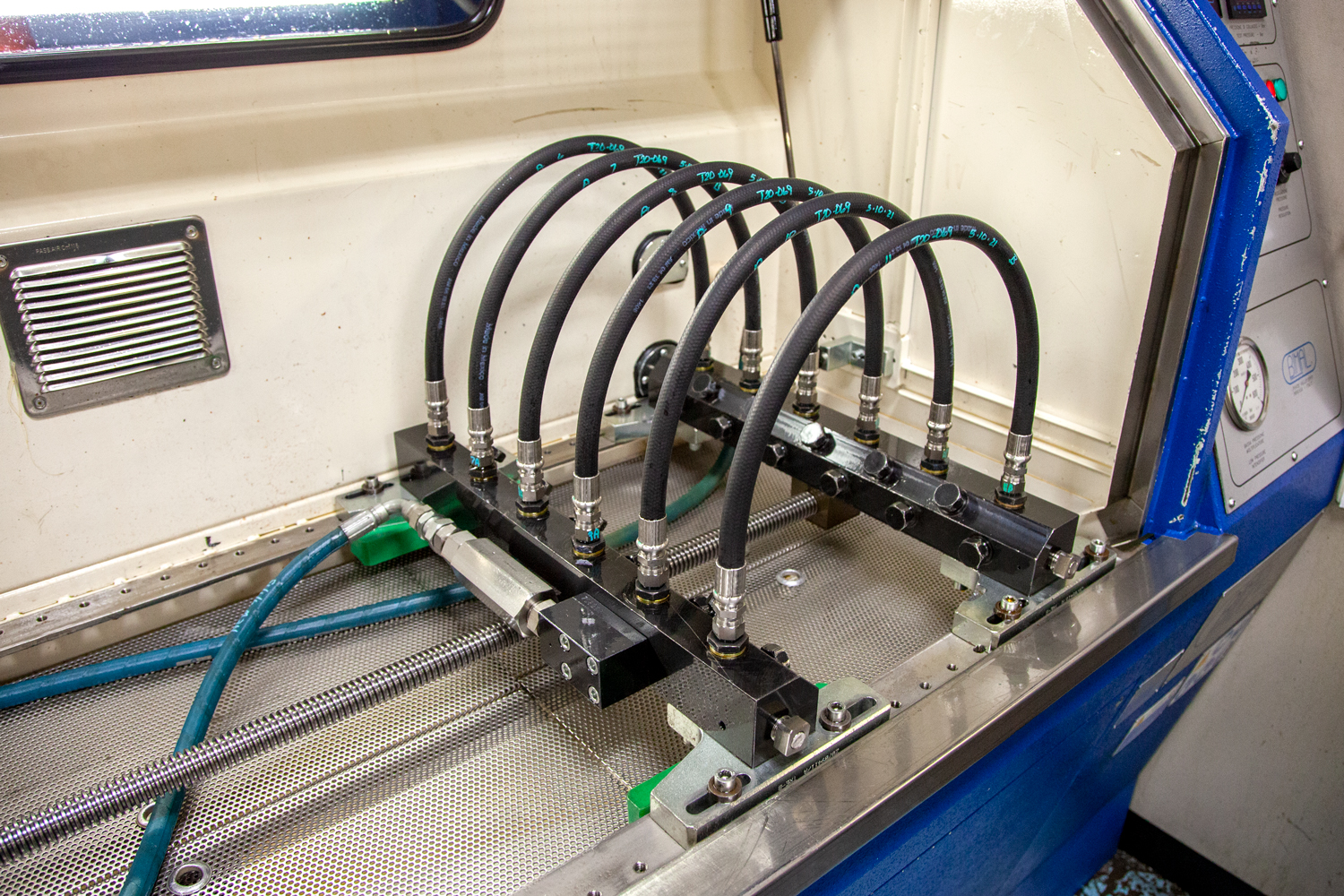
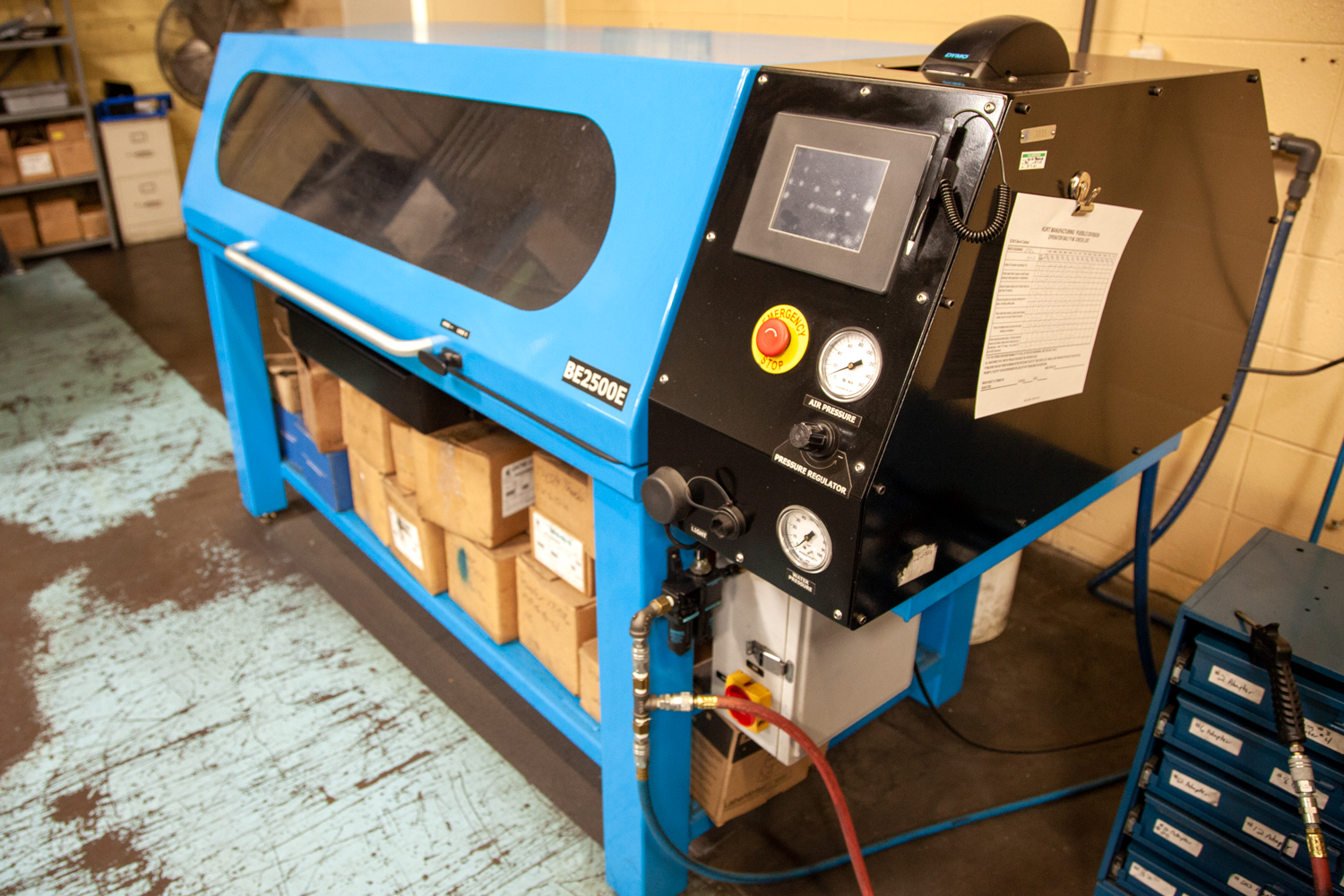
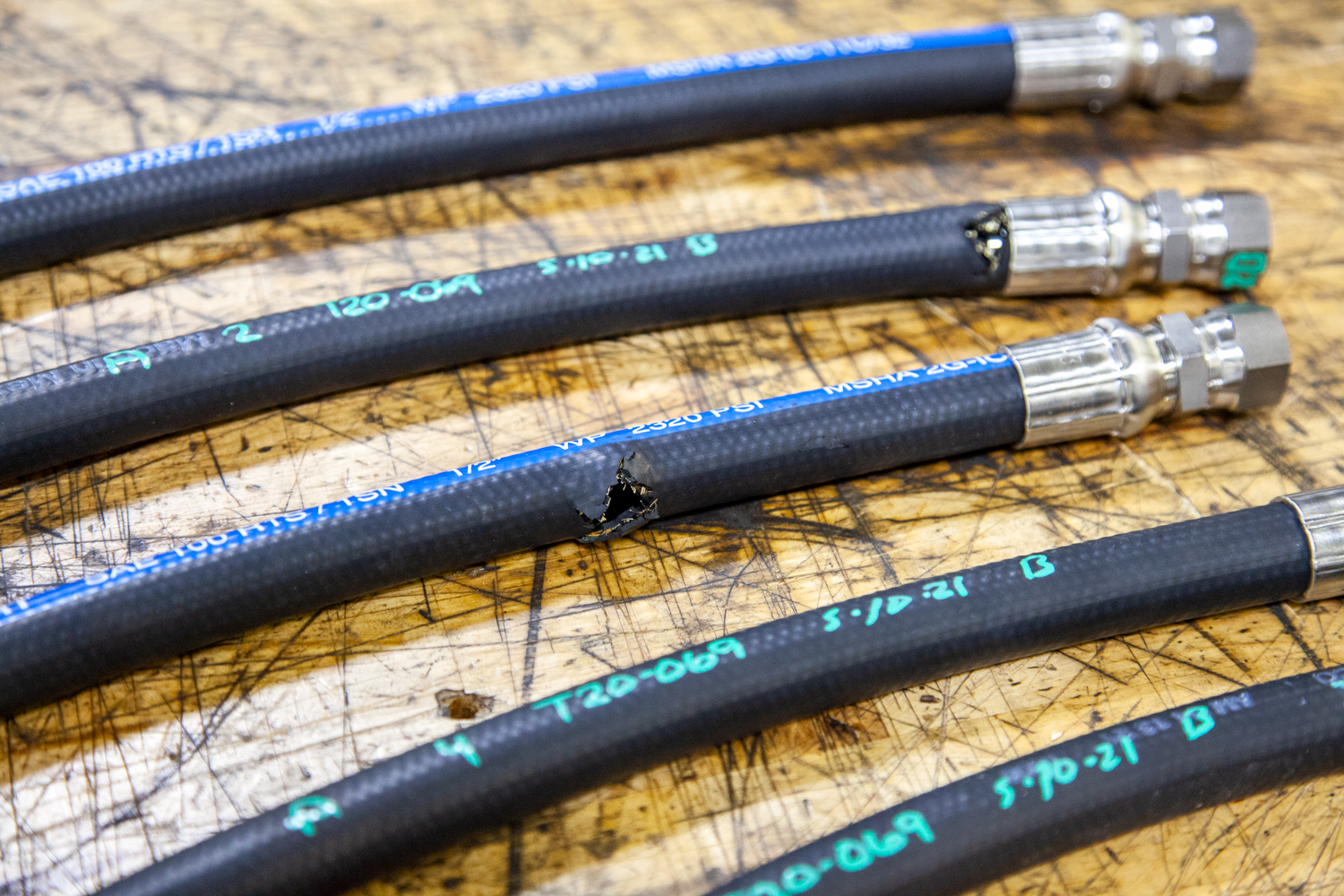
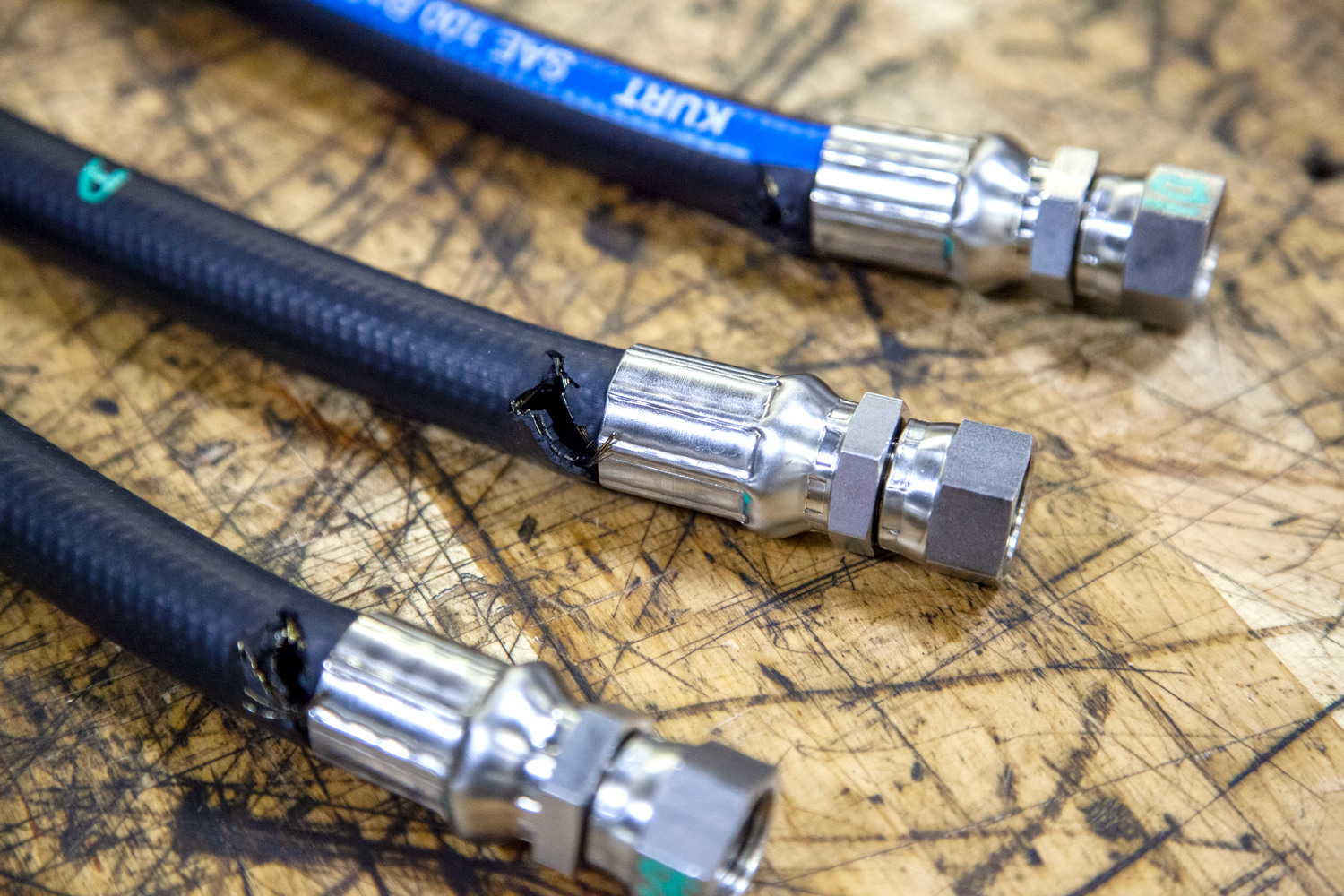
Impulse testing requires special machines that can cost $300,000 or more per machine, but they’re essential to validate testing protocols. “It’s critical to use an impulse cabinet to test hoses,” according to Czupryna. “You’ve got to hit it with an impulse of sudden pressure or sine wave to effectively test the hose—a slow buildup of pressure won’t do it. The impulse machines are really pounding the hoses, and if one doesn’t make it through the test, you have to start over.”
Testing 250 different hose variations can be a costly endeavor. That’s the reason Kurt owns two impulse-testing machines and a single burst-testing unit. Doing our testing in-house has several benefits: it helps validate quality claims, gives our product team intimate knowledge on how well hoses and couplings perform, controls costs, and allows more frequent testing.
Kurt hoses and couplings meet the German DIN standard, SAE, and ISO standards. Learn more about our quality specifications here.